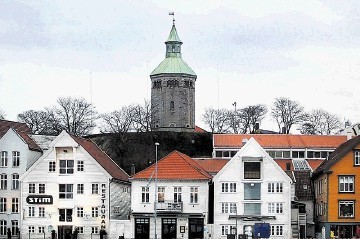
Aberdeen-based oil and gas companies increasingly find themselves facing growing global competition for an ever-decreasing pool of adequately experienced and qualified oil and gas professionals.
New developments in technology and an unabated global appetite for energy have led to the lifespan of several ageing North Sea fields being expanded, resulting in a boom period for the north-east’s oil and gas sector. This has led to companies in the region facing workforce problems in order to meet the increased demand and maximise the opportunities available.
In order for Aberdeen to maintain its position as a global oil and gas centre, it is imperative companies in the region continue to attract and retain high-calibre staff.
At a time of rising unemployment levels in the UK, many major oil companies in the north-east are bucking that trend, conducting all-year-round recruitment drives. When coupled with the findings of a recent Hays report revealing North Sea oil workers in 2011 earned on average £55,850 – twice the UK’s average salary – it may seem strange that so many vacancies exist.
However, with UK oil and gas workers able to earn in the region of £139,000 and £123,000 in Azerbaijan and Nigeria respectively, it is clear Aberdeen cannot compete on salary alone.
One method is to offer an increased rewards package, including share scheme incentives and flexible benefits as well as salary sacrifice initiatives which allow workers to reduce their National Insurance obligations.
With changes to the rules governing UK residency due to be introduced in April 2013, the take-home salaries of Aberdeen-based oil and gas workers will come under further constraint.
Employers can lessen the impact of the new legislation on their employees by planning ahead and perhaps introducing tax equalisation across their organisation. A tax equalisation policy guarantees employees’ take-home salaries, regardless of how long they spend working abroad in any number of different fiscal territories.
What cannot be underestimated by business leaders in Aberdeen when considering how to keep their company and city attractive to existing and prospective staff is the importance of “softer” issues.
Simple things like providing a subsidised staff canteen, on-site gym or comfortable break-out areas for staff can have a profound effect on efforts to foster a sense of togetherness and value among a workforce.
One city which Aberdeen could learn from is Stavanger, Norway, which has undertaken a range of initiatives designed to make the city a more attractive place to live and work. A cornerstone of that plan has been a concentrated effort to market Stavanger as a brand, encompassing the city’s heritage, key industries and even reputation as Scandinavia’s best spot for surfing.
Aberdeen-based oil and gas companies could look to replicate Stavanger’s example and establish close relationships with schools and universities to promote career opportunities and talent programmes.
Placing an increased emphasis on career planning and development creates longer-term prospects for employees which, in turn, builds stronger bonds of loyalty between employer and workforce.
Recommended for you
